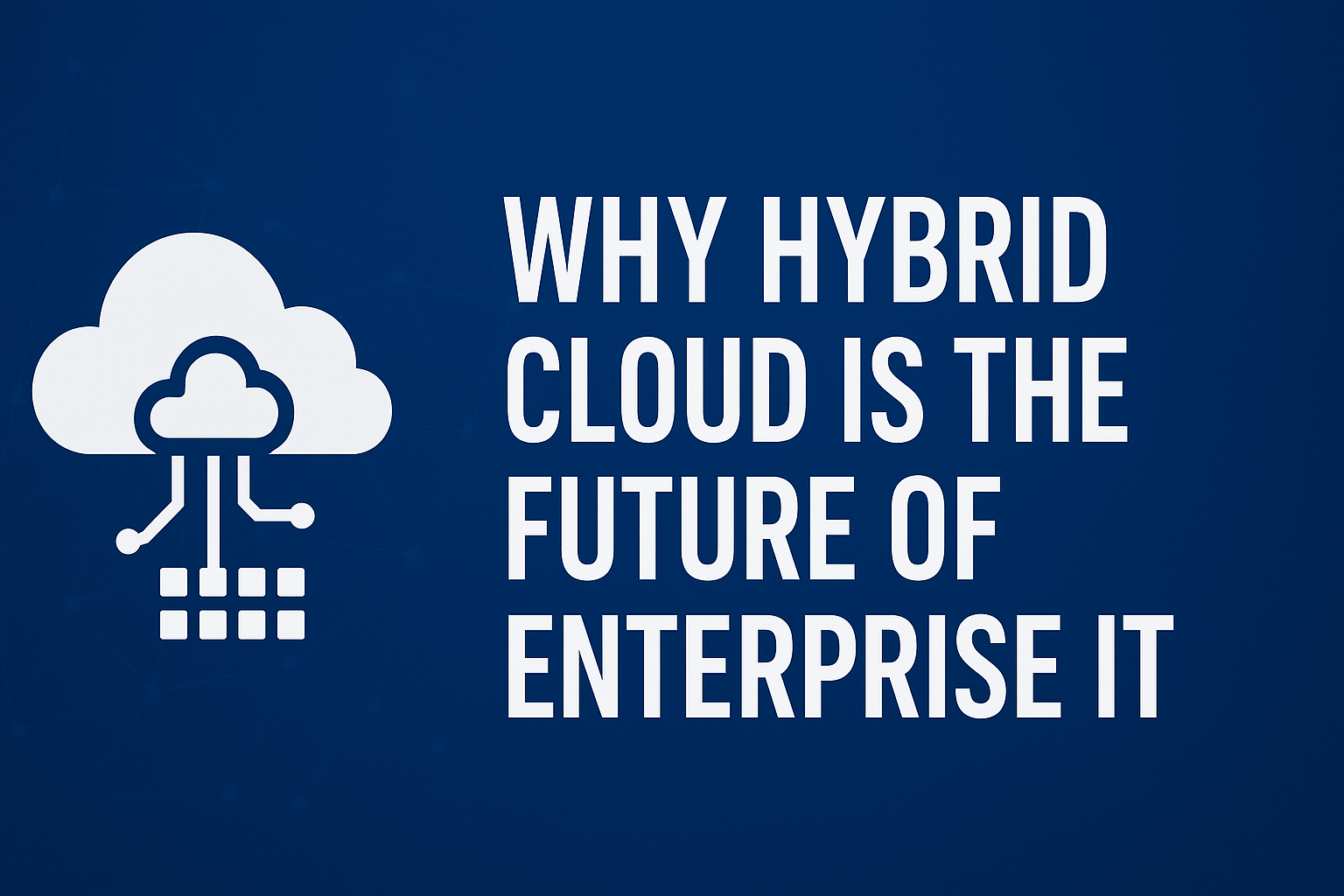Why Hybrid Cloud is the Future of Enterprise IT
In today’s rapidly evolving digital landscape, enterprises are seeking smarter, faster, and more secure ways to manage their IT infrastructure. The adoption of hybrid cloud computing has emerged as a strategic solution, combining the best of public and private cloud environments. But why is hybrid cloud becoming the future of enterprise IT? Let’s explore.
Understanding Hybrid Cloud
A hybrid cloud integrates private cloud resources with public cloud services, allowing businesses to seamlessly manage workloads across both environments. This model enables organizations to benefit from the scalability of public cloud while maintaining the security and control of private infrastructure.
Flexibility and Scalability
One of the most significant advantages of hybrid cloud is its flexibility. Enterprises can scale workloads dynamically based on demand. For example, during peak usage, businesses can leverage the public cloud for additional resources without overburdening their private systems. This agility ensures cost efficiency and optimized performance.
Enhanced Security and Compliance
Data security remains a top concern for enterprises. With hybrid cloud, sensitive data can be stored in a private environment while less critical workloads are managed in the public cloud. This dual setup helps businesses maintain compliance with regulatory standards and ensures that critical data remains protected while benefiting from cloud innovation.
Cost Optimization
Hybrid cloud models offer an effective balance between investment and expenditure. Instead of heavily investing in expensive private infrastructure or relying entirely on public cloud, enterprises can use a pay-as-you-go model. This approach reduces unnecessary costs, avoids overprovisioning, and ensures that IT spending aligns with actual business needs.
Business Continuity and Disaster Recovery
Another compelling reason why hybrid cloud is the future of enterprise IT is its role in business continuity. In the event of outages or disasters, hybrid cloud enables data replication and backup across environments, ensuring minimal downtime. This resilience is crucial for maintaining uninterrupted business operations.
Driving Digital Transformation
Digital transformation initiatives demand innovation, speed, and scalability. Hybrid cloud provides enterprises with the foundation to adopt emerging technologies like AI, big data analytics, and IoT. By leveraging both public and private cloud resources, businesses can drive innovation while maintaining governance and control.
Why Hybrid Cloud is the Future of Enterprise IT
The future of enterprise IT is not about choosing between public and private cloud but about adopting a hybrid strategy. Organizations need solutions that support innovation, security, scalability, and cost-effectiveness—all of which hybrid cloud delivers. As enterprises continue to adapt to evolving customer needs and competitive pressures, hybrid cloud will play a central role in enabling smarter IT ecosystems.
Final Thoughts
Hybrid cloud is not just a trend—it is the future of enterprise IT. Its ability to merge the strengths of public and private cloud ensures businesses remain agile, resilient, and competitive. By investing in hybrid cloud solutions, enterprises can achieve the perfect balance between innovation and control, paving the way for long-term growth and digital success.






